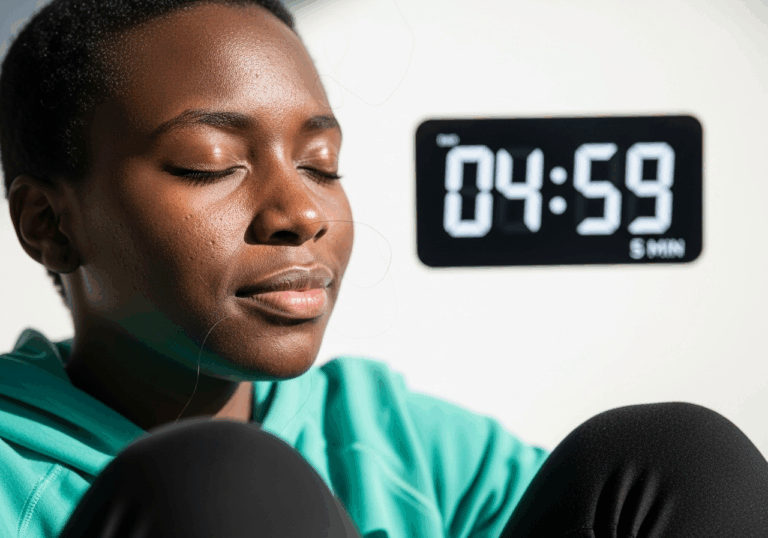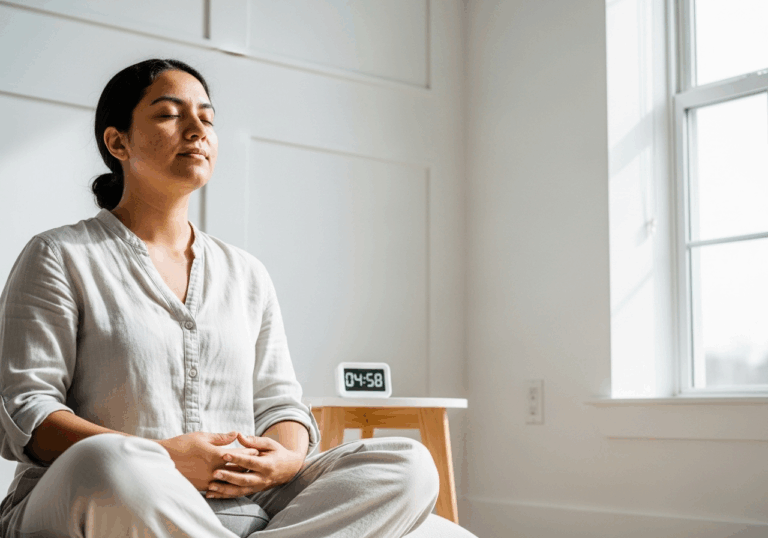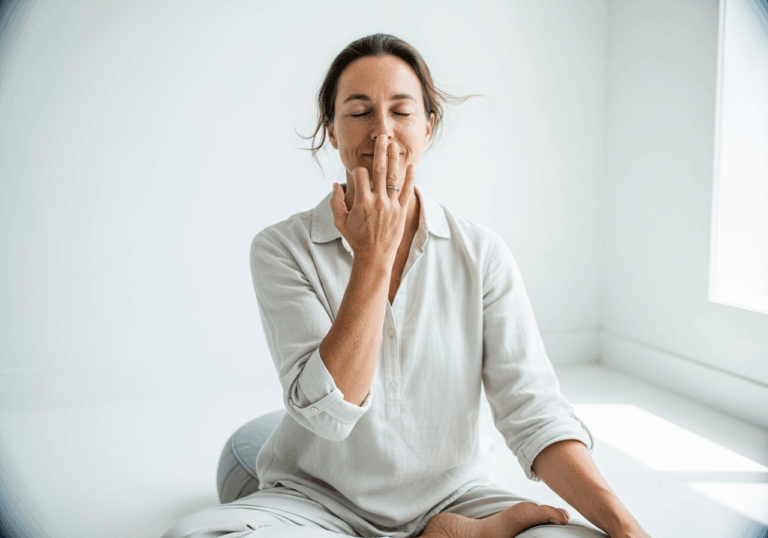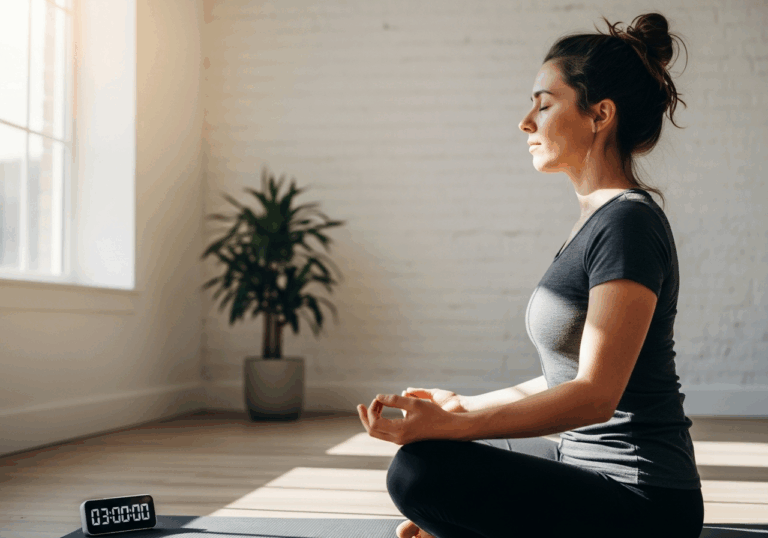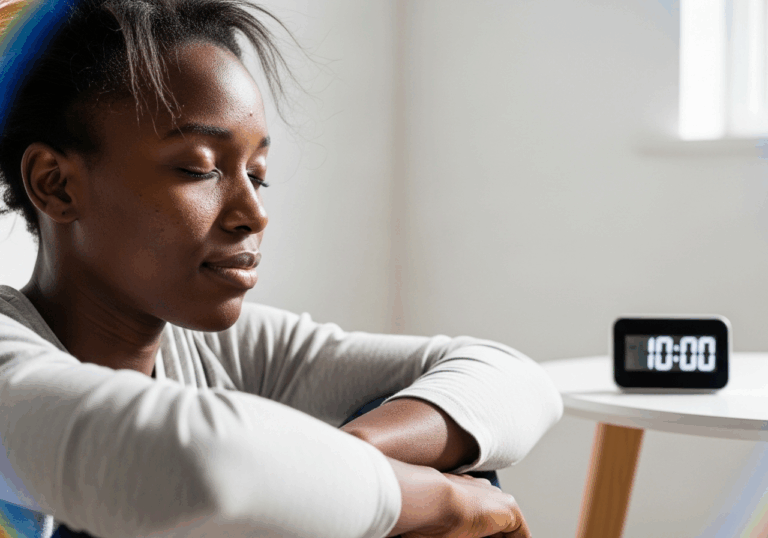Science-Backed Tips
Transform Your Wellbeing with Box Breathing
Daily practice can improve sleep and heart health by 0.5 SD.
📊 Did you know?
💡 Why It Matters
1️⃣
Improved HRV is associated with better cardiovascular health and lower stress levels.
2️⃣
Enhanced mood from better sleep can lead to increased productivity and life satisfaction.
3️⃣
Lower sleep onset latency can improve overall sleep quality, impacting daily functioning.
✅ Try These Micro-Tips
🎯
Practice box breathing for 10 minutes daily to enhance relaxation.
🎯
Incorporate slow-paced breathing exercises before bedtime to improve sleep onset.
🎯
Track your HRV weekly to monitor improvements in autonomic balance.
🎯
Engage in 20-minute sessions of slow-paced breathing to reduce blood pressure.
📚 The study
The meta-analysis revealed significant findings: an increase in RMSSD (a key HRV marker) with a standardized mean difference (SMD) of 0.37, and a more pronounced enhancement in SDNN (another vital HRV measure) with an SMD of 0.77.
Interestingly, the study also noted a decrease in systolic blood pressure (SBP) with an SMD of -0.45, indicating that slow-paced breathing not only promotes relaxation but also contributes to better cardiovascular health.
These results underscore the importance of integrating slow-paced breathing practices into daily routines, as improved HRV is closely linked to lower stress levels and enhanced mood.
Furthermore, better sleep quality, achieved through these breathing techniques, can lead to increased productivity and overall life satisfaction.
By adopting practices like box breathing, individuals can experience a profound transformation in their emotional and physical health, paving the way for a more balanced and fulfilling life.
❓ Frequently Asked Questions ❓
Learn more
What is box breathing?
Box breathing is a slow-paced breathing technique that involves inhaling, holding, exhaling, and holding the breath for equal counts. It is often used to promote relaxation and reduce stress levels.
How does box breathing improve sleep onset latency?
Practicing box breathing can help calm the mind and body, making it easier to fall asleep. This technique promotes relaxation, which can reduce the time it takes to transition into sleep.
What are HRV markers like RMSSD and SDNN?
HRV markers such as RMSSD (Root Mean Square of Successive Differences) and SDNN (Standard Deviation of Normal-to-Normal intervals) are indicators of autonomic nervous system function. Higher values of these markers are associated with better cardiovascular health and lower stress levels.
How long should I practice box breathing daily?
It is recommended to practice box breathing for about 10 minutes each day to experience its benefits. Consistency in practice can lead to improved relaxation and overall well-being.
Can box breathing enhance my mood?
Yes, improved sleep quality from box breathing can lead to enhanced mood and emotional well-being. Better rest contributes to increased productivity and life satisfaction.
What is the impact of slow-paced breathing on blood pressure?
Engaging in slow-paced breathing exercises can help reduce blood pressure levels. This reduction is beneficial for overall cardiovascular health.
How can I track my HRV?
You can track your HRV using wearable devices or smartphone apps that monitor heart rate variability. Regular weekly tracking can help you observe improvements in your autonomic balance.
What are the benefits of improved HRV?
Improved HRV is associated with better cardiovascular health and lower stress levels. It also indicates a more balanced autonomic nervous system, which can enhance overall well-being.
How does lower sleep onset latency affect daily functioning?
Lower sleep onset latency can lead to improved overall sleep quality, which positively impacts daily functioning. Better sleep enhances cognitive performance, mood, and energy levels throughout the day.
What is the recommended duration for slow-paced breathing sessions?
Engaging in 20-minute sessions of slow-paced breathing is recommended for optimal benefits. This duration allows for deeper relaxation and stress reduction.
